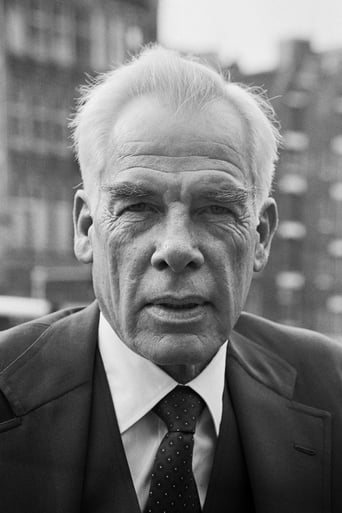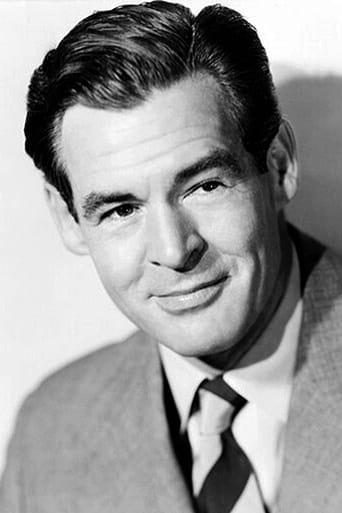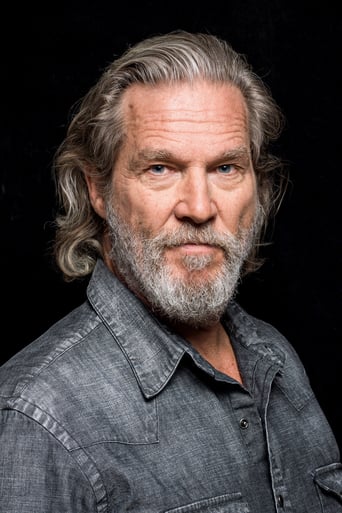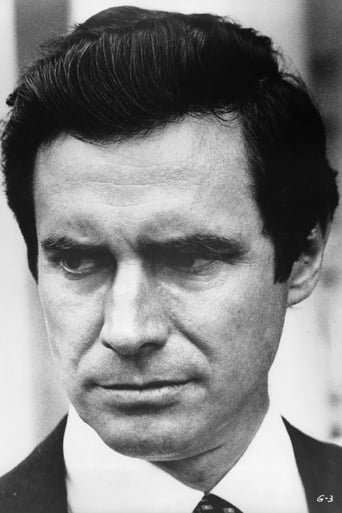VividSimon
Simply Perfect
AnhartLinkin
This story has more twists and turns than a second-rate soap opera.
Plustown
A lot of perfectly good film show their cards early, establish a unique premise and let the audience explore a topic at a leisurely pace, without much in terms of surprise. this film is not one of those films.
Cheryl
A clunky actioner with a handful of cool moments.
sissoed
Never having see "Iceman" live or on film, I watched the 1973 Lee Marvin version first, then the 1960 Jason Robards version, because I wanted to see the Lee Marvin approach without the bias of having previously seen the famous Robards approach. Both performances were excellent: Marvin was more believable as a coarse, cheating salesman, while Robards was more soft and humane. Each connected deeply into the playwright's vision, but differently. The major difference between the two productions is not Hickey, but his main foil, Larry Slade. In the 1973 version, Ryan opens the play with hopeless bitterness, a darkness that suffuses the first scene. In the 1960 version, McCormick begins the part with a lighter, bemused detachment. In the 1960 version, Slade is reading newspapers, which shows he still has an interest in the world. In the 1973 version, Ryan's Slade is in gloom, no newspapers in sight – and no light to read them by even if he had them. In fact, the first scene of the 1973 version is so slow and gloomy that it is very hard to see any reason to watch the play. None of the characters makes you want to spend a little more time with them, and none of them interact with each other in a way that is friendly or kind. The 1960 version is much lighter, and the emotional ties between sub-groups of characters are more developed. The 1973 version comes to life only when Hickey enters (the 1960 version is alive from the start), and Marvin's Hickey redeems the tedium of the scenes that precede him. Also, in the 1973 version of the 1st scene, when one character is speaking to another, the camera is often behind and to the side of the head of the listener, showing only the back and side of the listener's head. This prevents us from seeing the listener reacting to the speaker, which turns all these speeches into soliloquies delivered into the air. Now, I don't know which version is closer to O'Neill's vision (although we can be pretty sure the 1960 version is closer to O'Neill's text), but I can say that in the 1973 version, up until Marvin's Hickey arrives, it's hard to feel any desire to listen to any of these self-involved, isolated, moody failures. In the 1960 version you get a sense that this is a community of people with some positive aspects – a web of friendships, or at least, the appearance of friendships. A problem common to both versions is the implausibility of a room full of these sleeping or lethargic people slumped over the tables, allegedly because they were all waiting for Hickey. A reviewer pointed out that the play reworks the 'Last Supper,' with Hickey in the Christ role, and the other men regulars in the role of the 12 disciples. However, there are 13 male characters in addition to Hickey, so it appears that O'Neill has changed the structure. As regards the 'Last Supper' model, the Christ character is not Hickey, but Larry Slade. He is the one whom Parritt comes to – Parritt, who betrayed the movement and his mother for money, and who thus functions in a Judas role, and who seeks Slade's forgiveness. But the Christ here – Slade – is a 'savior' who knows nothing, who has lost faith in his own movement. Hickey is the new character, one who was not at the 'Last Supper.' Hickey's repeated protestations of wanting to help the others, and the way in which he can help them, shows that Hickey is not a Christ, but a kind of Buddhist bodhisattva – to quote one definition, a being 'who delays his own final and complete enlightenment in order to save all sentient beings out of his enormous compassion … on a mission to liberate all sentient beings, and only then will he rest and complete his own enlightenment.' In 1939, when O'Neill wrote "Iceman," he was deeply interested in Eastern religions, and in fact wrote "Iceman" while living in a home he gave an Eastern name, "Tao House," meaning 'the right way of life.' At the table where the characters are all gathered for Harry Hope's birthday party, Hickey talks about how his goal is to get all of the inmates of Hope's bar feeling "you won't give a damn what you are anymore" and "don't give a damn about anything anymore" – this is the indifference, the non-feelingness, of the eastern concept of nirvana. Immediately after this, Slade responds by characterizing the people in the saloon as "us poor pipe-dreaming sinners along the sawdust trail of salvation" – the imagery of Christian salvation. This sets up the fundamental issue of the play: whether Buddhist concepts of nirvana can replace the failed (at least, failed to O'Neill) salvation concepts of Christianity. By the end of the play, we know O'Neill's answer: no. Hickey learns first that although he has forced the others to face up to the failed people they really are, this has not brought them peace; and then, almost as an accident, Hickey himself learns that his own peace has been based on a flattering lie to himself about himself. Once he sees his own reality, the reality of how fallen he really is, not even he, the bodhisattva, can face it. Seeing how the others are clinging to happiness by feeling hope that they are better than they really are, he decides to fall-in with their self-lying, so that they will also lie and tell him that they agree that he is a better person than he really is. Only Slade, the Christ-figure, says that Hickey has converted him to be able to face his worthlessness and self-deception. At this point, Parritt – following the Judas model, Judas who hung himself out of guilt – kills himself by leaping from a height.
marcslope
One of the brownest movies ever made -- brown walls, brown furniture, red-brown faces of the drunken patrons of Harry's Bar -- and somehow that feels appropriate, as a lot of it is about autumnal regrets and faded dreams. One in the series of the AFI's American Film Theatre series, it's a very faithful rendering of O'Neill's great play, with one original Broadway cast member (Tom Pedi's bartender) and loads of good casting throughout. John Frankenheimer's camera is thrust right up at the actors' faces, and you keep looking for artifice or melodrama, but, with the exception of Sorrell Booke's sodden Hugo, there's very little. Fredric March's deluded Harry Hope, Robert Ryan's despairing ex- revolutionary Larry, Jeff Bridges' guilt-ridden student (a very difficult role for a young actor, especially in company as august as this) -- all have the ring of truth, and once you get used to the deliberate pacing, repetitive arguments and apologies, and startlingly frank language for a 1946 play, you're hooked. As to Lee Marvin's Theodore Hickey: I was convinced up to his famous Act Three monologue, but he stumbles here, launching into badly calibrated fits of temper and back again. Compare it against Jason Robards Jr.'s interpretation in the 1960 Sidney Lumet-directed TV version, and you'll see the difference between a good actor overreaching and a master in a role he was born to play. (I also saw Kevin Spacey's attempt on the stage a few years ago: He played Hickey like Professor Harold Hill, all bluster and forced charisma, and it didn't work.) A depressing four hours, but worthy, and a rich sample of the actor's art.
Florence Lawrence
This is a fabulous film about human nature IMHO, written by someone who knew suffering all too well, all his characters are just so rich and recognisable. They easily transfer to a modern age, as sadly trying to push down feelings of discontentment, unhappiness and guilt with alcohol or chemical abuse and lies you half believe, told to yourself, is just as much a modern hobby.The film see's everyone waiting for the arrival of Hickey (Lee Marvin), why because Hickey is fun, he makes everybody feel better, not only by supplying the booze and therefore artificial joy that brings, but also because he can further enhance the delirium with his gift of knowing just what people want to hear.Harry's bar provides the setting for this drama, throughout the film we never leave this dark claustrophobic environment. To it's inhabitants though, it's a haven, a place where they can exist one day at a time, without having to ever face the real world.They all firmly believe that a wonderful life is just waiting outside the door, wishing they would come out, eager for their participation, and just happy to hang on for them to be ready to decide too participate.Well maybe they don't firmly believe this, when the effects of the alcohol subsides and they have not got someone like Hickey to blow on their tiny little embers of self delusion with words of hope, cold moments of reality, rattle at their consciousness, as the truth attempts to rear it's ugly head.The occupants of the bar are like a self support group of agoraphobic's, fellow sufferers provide distractions and so less moments of clarity too nag at their guilt ridden souls, asking for a reckoning regarding what a waste they are making of such a precious thing as a human life.However when Hickey turns up, it's not the Hickey they all know and love, his long awaited arrival, lacks it's usual comforting effect.
safford99
The American Film Theater made about 10 films of notable plays which retained the feel of seeing a theater production, but employed high caliber actors to fill the roles, and enhanced production values so you are not just simply watching actors perform on a stage. The movies that were made (A Delicate Balance, Luther, Galileo, The Maids, The Man in the Glass Booth, Butley, In Celebration, The Homecoming) are interesting, but not really entertaining.The camera doesn't replace the experience of seeing a live performance, and since the actors are employing theatrical techniques in their performances they do come across as overblown and somewhat hammy. "The Iceman Cometh" comes across better than most of the AFT productions. The cast is steller with Robert Ryan and Bradford Dillman being particular standouts. The only weak performance is delivered by Jeff Bridges who was probably too young at the time to rise to the demands of O'Neill's work.
This is a long movie (4 hours)and character driven, but worth the viewing.




